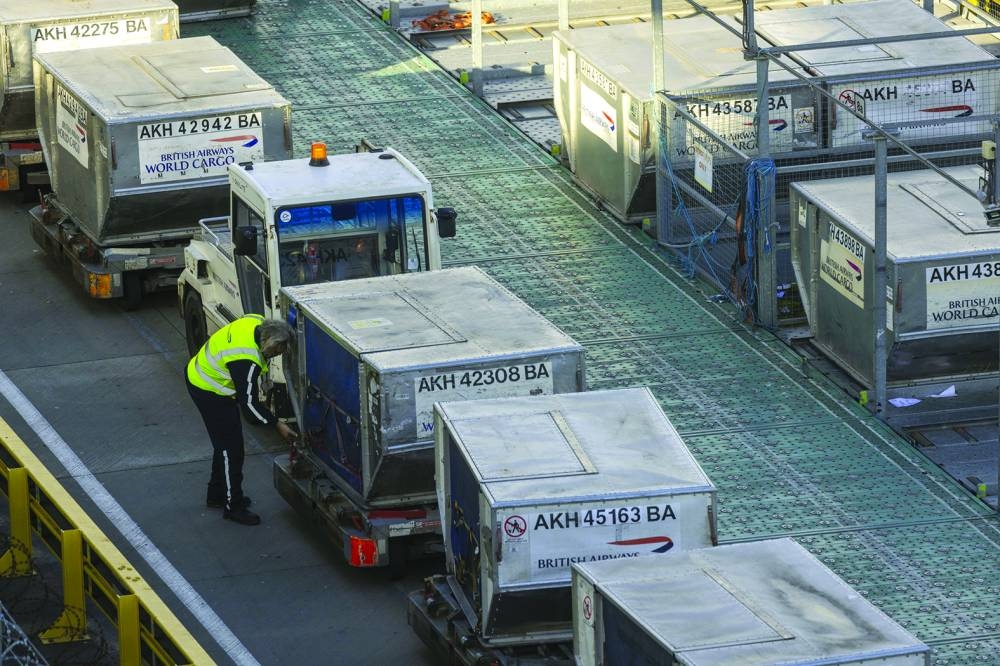
Beyond the tarmac
The air cargo sector stands as an indispensable linchpin in the realm of global trade, boasting unparalleled attributes of speed, global connectivity, reliability, and efficiency.
In the fast-paced world of commerce, where time is of the essence, air cargo transportation reigns supreme as the swiftest mode for shipping goods across vast distances.
This rapid transit capability proves especially invaluable for the transport of perishable goods, high-value commodities, and time-sensitive deliveries, empowering businesses to meet stringent deadlines and swiftly adapt to dynamic market demands.
Spanning the globe with its extensive networks, air cargo services form the vital arteries that interconnect distant markets, fostering seamless international trade.
This expansive reach not only facilitates access to diverse suppliers, manufacturers, and consumers worldwide but also empowers businesses to actively engage and thrive within the global economic landscape.
Underpinning the seamless operation of air cargo services are substantial investments by airlines in cutting-edge infrastructure, advanced technology, and stringent safety measures.
This unwavering commitment to excellence ensures the dependable and secure transportation of goods, thereby enabling businesses to mitigate supply chain disruptions and uphold consistent product availability in the marketplace.
While it is a fact that air cargo transportation entails higher costs compared to alternative modes such as sea or land freight, its efficiency for specific types of goods and shipments cannot be overstated.
By circumventing congested ports, customs delays, and curbing inventory carrying costs, air cargo emerges as a compelling and cost-effective choice for countless businesses seeking optimal logistics solutions.
In essence, the air cargo sector stands as a cornerstone of global commerce, embodying the epitome of speed, reliability, and efficiency, and continues to serve as a driving force behind the interconnectedness and prosperity of the global economy.
According to the International Air Transport Association (IATA), global air cargo markets continued to show strong annual growth in demand based on its data in March.
Total demand, measured in cargo tonne-kilometres (CTKs), rose by 10.3% to 23.1bn CTKs in March compared to March 2023 levels (11.4% for international operations). This is the fourth consecutive month of double-digit year-on-year growth.
Capacity, measured in available cargo tonne-kilometres (ACTKs), increased by 7.3% compared to March 2023 (10.5% for international operations).
Middle Eastern carriers, including airlines based in the GCC, saw a 19.9% year-on-year demand growth for air cargo in March – the strongest of all regions.
The Middle East–Europe market was the strongest performing with 38.3% growth, ahead of Middle East-Asia which grew by 19.6% year-on-year, IATA said and noted March capacity increased 10.6% year-on-year.
Several factors in the operating environment should be noted, IATA noted.
Global cross-border trade and industrial production increased by 1.2% and 1.6% respectively in February.
In March, the manufacturing output Purchasing Managers’ Index (PMI) climbed to 51.9, indicating expansion. The new export orders PMI also rose to 49.5, remaining slightly below the 50 threshold that would indicate growth expectations.
Inflation saw a mixed picture in March. In the European Union and Japan, inflation rates fell to 2.6% and 2.7% respectively, while rising in the US to 3.5%.
In contrast, China experienced a slight deflation of -0.01%. This latest figure marks a return to deflation after February's brief period of inflation.
IATA Director General Willie Walsh said, "Air cargo demand grew by 10.3% over the previous March. This contributed to a strong first quarter performance which slightly exceeded even the exceptionally strong 2021 first quarter performance during the Covid-19 crisis. With global cross-border trade and industrial production continuing to show a moderate upward trend, 2024 is shaping up to be a solid year for air cargo."
Undoubtedly, air cargo sector serves as a vital artery of global trade, facilitating the movement of goods across borders with speed, reliability, and efficiency, thereby contributing significantly to economic growth and development on a global scale.
Pratap John is Business Editor at Gulf Times. Twitter handle: @PratapJohn


